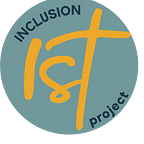Am I complicating progress by watching shows with racial comedy?
Shows such as SNL and the Office are notorious for their absurdist comedy routines, including racial comedy, i.e. SNL Black Jeopardy. As I learn more about systemic racism, I wonder if I am complicating progress in any way by watching these types of comedic routines?
We thought this was a really interesting question. Obviously the intent of the people creating these shows, whether black or white, is for people to laugh. Black comedians are not saying “no white person better laugh at this”. Comedians want people to laugh and engage in the content they are creating.
Life imitates art. Art imitates life.
This brings up questions for many people. Is it okay to laugh? Should I laugh when people are being made fun of it? Does that make me racist?
But, if we’re being honest, all your favorites are problematic (sorry to break it to you).
Everything you like, whether a book or movie, usually has a problem or issue associated with it. While that’s super reductive, people watch comedy because they have certain scripts that are running through their minds that keep getting recycled in the media. These scripts are used for comedic effect a lot.
If you watch these shows or movies, does it make you racist? Does it hold you in racism? Just by asking this question, you’re engaging with the thought. And that’s the first step in questioning what and why you are watching what you are watching.
If you’re questioning this when you’re watching something, you can decide on an individual basis what you think and feel about it. Asking these questions makes it an individual thing you can explore yourself.
You can decide not to watch this type of program anymore. If you think it’s complicating progress in any way, you can begin to decide what types of shows and content you do want to consume.
In addition to this, if you stop watching certain shows or movies, maybe you can begin to share why you stopped watching them. You have a bigger sphere of influence than you think, we all do. Your decision to watch or not watch a show has the power to create a trickle effect that changes the thoughts of the people around you and then maybe these shows and movies will stop being produced.
And while that may seem like a surface-level thing to make us feel comfortable by changing the conversations, you are changing what’s acceptable, what’s engaging, what we like to hold as communal values, what we want to hold and what we also share as humor. This decision impacts more than you. It affects your communities.
The bigger question you should be asking: What do anti-racism, consumerism, and consumption look like in your life?
An example we like to give is veganism. People who are on a vegan diet and don’t use any animal products have to learn how to live and eat that way. It takes work to understand what things in your life have animal products in them. It goes deep and there are a lot of things to work through. You have to start researching and paying attention to what everything is made from; what is in your shoes, chairs, spoons? It’s the same with racism.
This idea of consumption, looking at it through an anti-racist lens, and evaluating it based on what you know and the research you have done can take time. You have to decide whether or not you are going to consume anything that has racism in it. You should also ask yourself, will I talk about why?
And we want you to remember, there’s other media out there (even on Netflix). Even doing that, changing what you watch and asking for more representation in the media, in books, and on TV can create change. We need to share diverse stories. We’re not getting the diversity of narratives. And those narratives are also important, including comedy and everything else.
